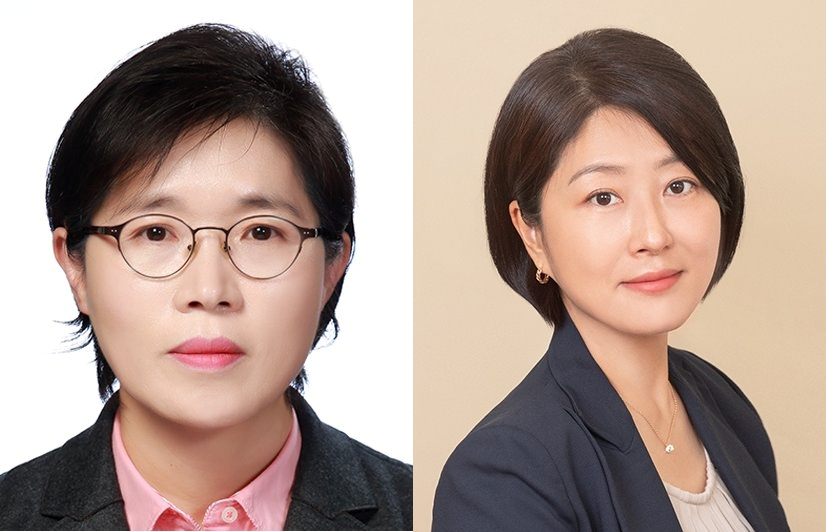 |
LG Household & Health CEO Lee Jung-ae (left) and CJ Oliveyoung CEO Lee Sun-jung (LG H&H and CJ) |
A wind of change may be blowing at the nation’s male-dominant corporate culture, with more women getting promoted to take top seats amid year-end reshuffles.
LG Group last week tapped two female CEOs to lead its key affiliates – Lee Jung-ae for its retail arm LG Household & Health and Park Ae-ri for its advertising unit G II R.
It was the first time not just for LG, South Korea’s fourth-largest conglomerate, but for one of the nation’s top five chaebol groups, to appoint a female CEO who is not a member of the founding family. The top five business groups also include Samsung, SK, Hyundai Motor and Lotte.
Joining LG H&H in 1986, Lee is known to have played a leading role in nurturing the company’s consumer goods, high-end cosmetics and refreshment businesses. She became LG’s first female vice president in 2015.
Lee is expected to lead a turnaround at the company’s flagship cosmetics business that has been battered by the COVID-19 pandemic. During the January-September period, its operating profit plummeted by 44.5 percent to 582.2 billion won ($438.4 million) compared to a year earlier.
CJ Oliveyoung, another leading beauty retailer under CJ Group, the 13th-largest family-run conglomerate, named its sales chief Lee Sun-jung as its first-ever female CEO who is also the youngest leader to take the helm.
The 45-year-old Lee is tasked with further expand its footing in the health and beauty business, laying the groundwork for its planned market debut at the nation’s benchmark Kospi. In August, CJ Oliveyoung scrapped its plans for IPO citing a prolonged bear market.
Hanwha Galleria, the retail arm of Hanwha Solutions, appointed Department Head Kim Hae-yeon as Director, the youngest ever female executive there. Retail giant Shinsegae named four new female executives as well.
Despite more women in leadership roles in recent years, Korea still does not have enough female leaders, industry watchers say.
According to data from market tracker CEO Score, there were only 11 female CEOs serving at the nation’s top 500 companies here as of October, taking up a tiny 1.7 percent of the total. The portion has increased by 0.7 percentage point over the past decade.
Even among the 11 female CEOs, three were from the companies’ owner families.
The top five chaebols have increasingly appointed female executives now and then, but most of them were not named CEO.
Data from headhunting firm Unicosearch showed as of June, only 5.6 percent of the total 7,175 executives in the 100 largest listed firms in terms of sales volume were female. Of them, 28 had no female executives.
“Some retail companies are seeing a growing number of female executives. But there is still a hard glass ceiling in industries such as steel, chemical and shipbuilding,” said a company official on condition of anonymity.






![[Today’s K-pop] Blackpink’s Jennie, Lisa invited to Coachella as solo acts](http://res.heraldm.com/phpwas/restmb_idxmake.php?idx=644&simg=/content/image/2024/11/21/20241121050099_0.jpg)
